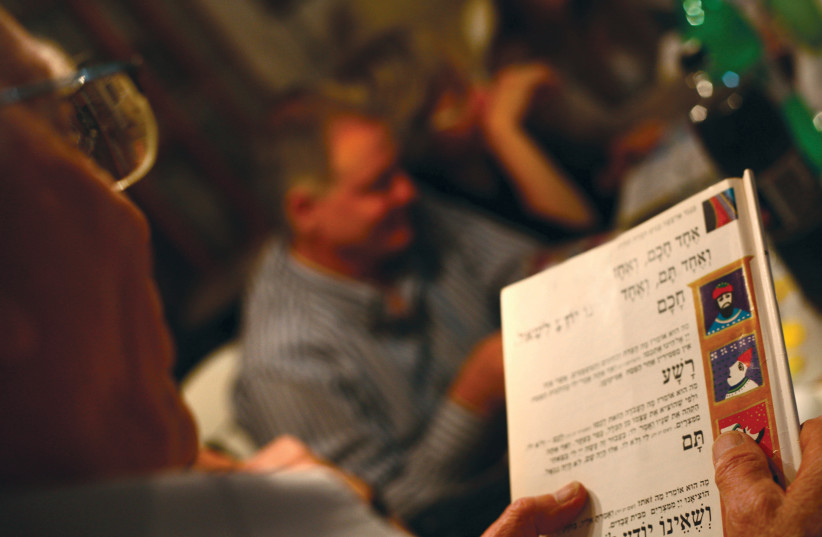With just hours before Jews around the world will sit down for the first Passover seder since the Oct. 7 attack on Israel, many are reckoning fully for the first time with how to discuss the trauma and pain of the last seven months at their tables.
A diverse array of Jewish groups and leaders have produced materials designed to help with that reckoning. The traditional haggadah — of which there are many new ones this year — offers a durable framework for grappling with a world that includes both danger and resilience for the Jewish people; the new supplements aim to help Jews connect that story with current events, including the attack on Israel, Israel’s war in Gaza and rising reports of antisemitism around the world. The supplements come from Jews and Jewish institutions across the political, ideological, and religious spectrum.

Haggadah supplements for this year
Here’s a (non-exhaustive!) selection of some of the many supplements released this year, all of which can be printed at home for those who choose to do so.
- Under the direction of Rabbi Mishael Zion, the Hartman Institute produced an extensive supplement that includes contributions from people directly affected by Oct 7 and an essay by prominent Israeli author David Grossman.
- Rabbi Menachem Creditor and Ora Horn Prouser, the CEO and dean of the Academy of Jewish Religion, edited a supplement that begins, “I am at the seder, but my heart is in October.”
- The Schechter Rabbinical Assembly in Israel crafted a supplement that is available in Hebrew and English and includes poetry written during a daylong conference about adapting Passover for the current moment.
- A digital supplement by New York City’s Reform Central Synagogue centers poetry written by Israeli poets since Oct 7; while the Reform movement has released its own.
- The Hostage and Missing Families Forum has created a full haggadah that features those who remain hostages in Gaza; donations from the sale of the digital version benefit the advocacy organization.
- Yeshiva University’s Rabbi Lord Jonathan Sacks-Herenstein Center for Values and Leadership issued a supplement with a specific Oct. 7-related teaching or question for each step of the seder.
- The Pardes Institute’s supplement challenges users to draw direct parallels between Pharaoh and Hamas.
- Rabbi Joshua Kulp created a supplement that draws on the haggadahs produced in Israel’s early years by its kibbutz communities, some of which were attacked on Oct. 7.
- An international coalition of what its members call “the religious left” put out a reader meditating on the themes of the seder through a leftist, anti-occupation lens.
- The supplement from Bayit includes several poems including one that reimagines the four children of the haggadah as contemporary Jews: “Today the Four Children are a Zionist, a Palestinian solidarity activist, a peacenik, and one who doesn’t know what to even dream.”
- Anyone who has picked up the Kveller Haggadah from our families-focused sister site over the last four years since it was published will want to sign up to get the Oct. 7 supplement with seven ways to address the crisis at their seders.
